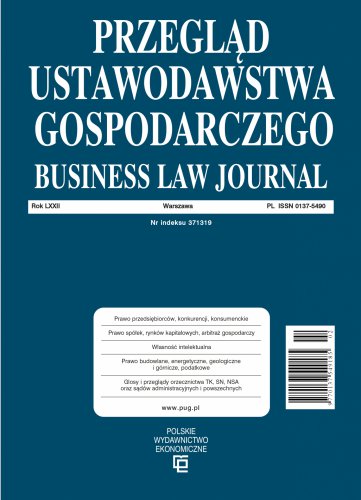The article deals with the issue of protecting Polish consumers who are customers of non-domestic lenders (i.e lenders with no registered seats on the territory of the Republic of Poland) granting facilities to Polish consumers. The protection is shown in the context of public oversight over non-domestic lenders, exercised as part of the supervision over the financial market. The purpose of the article is to analyze on what legal basis those non-domestic entities conduct their activities in Poland and how enforcement is used to ensure their compliance with the applicable provisions of law regarding taking up and running of activities in this area, as a part of the supervision of the Polish Financial Supervision Authority (Komisja Nadzoru Finansowego, KNF) over such entities.
The article is also an attempt to answer the following questions — are competences of KNF as lenders supervisory authority under the supervision of the financial market sufficient to provide consumers with protection while using services on the consumer credit market in Poland?; Is it indirect (or direct) protection and should the role of KNF in this respect be changed?
Keywords: lender; credit institution; loan institution; consumer protection; supervision over non-domestic lender; non-domestic entities

